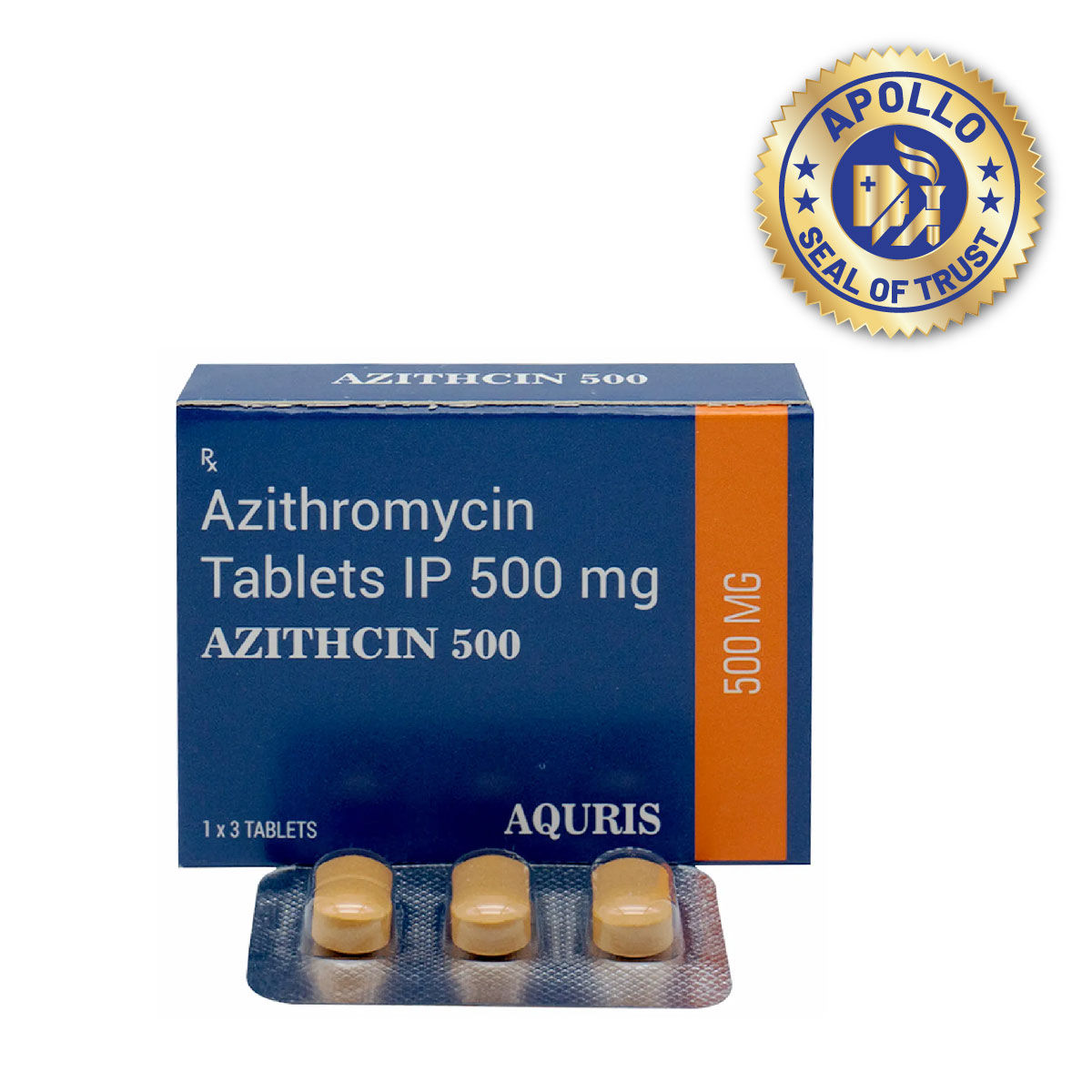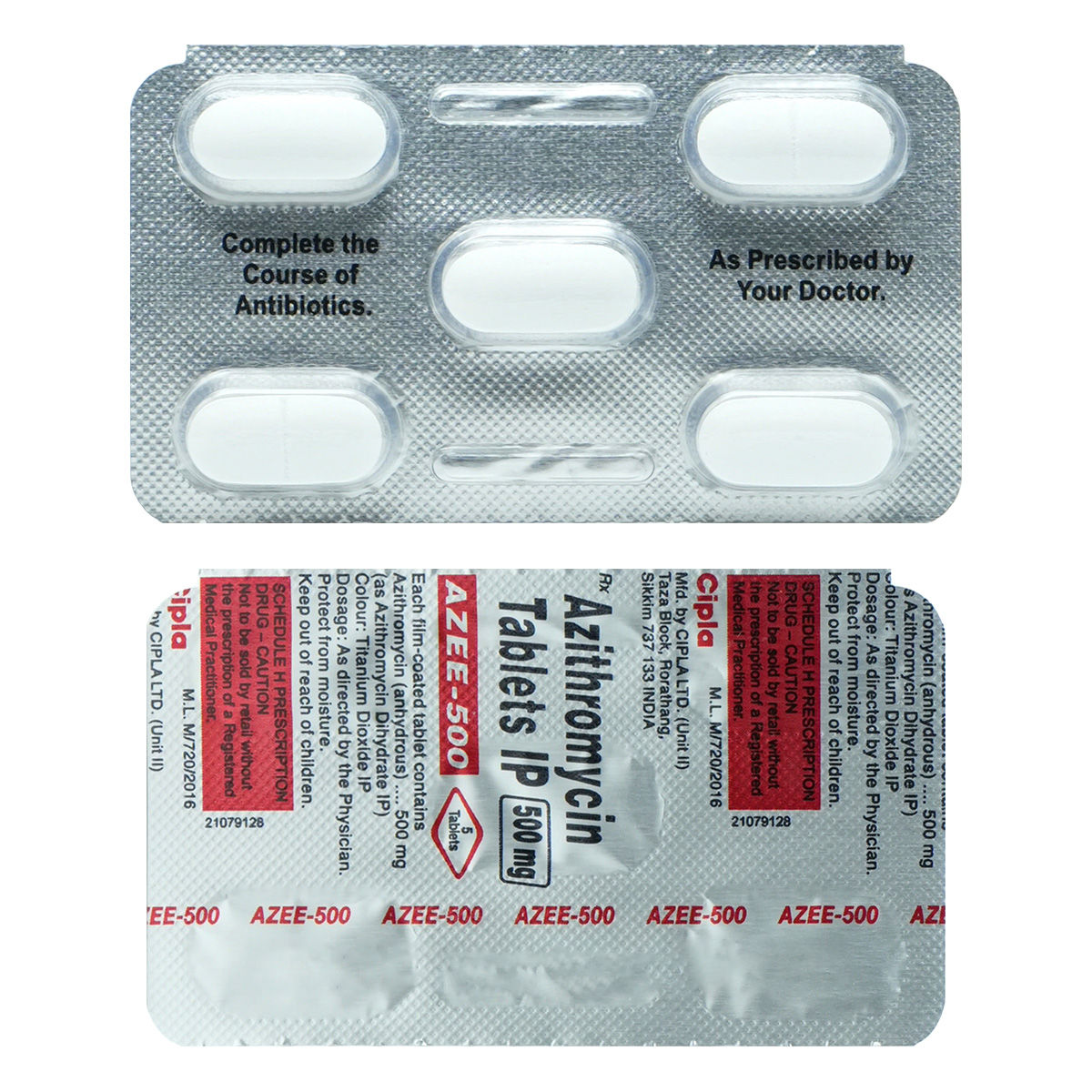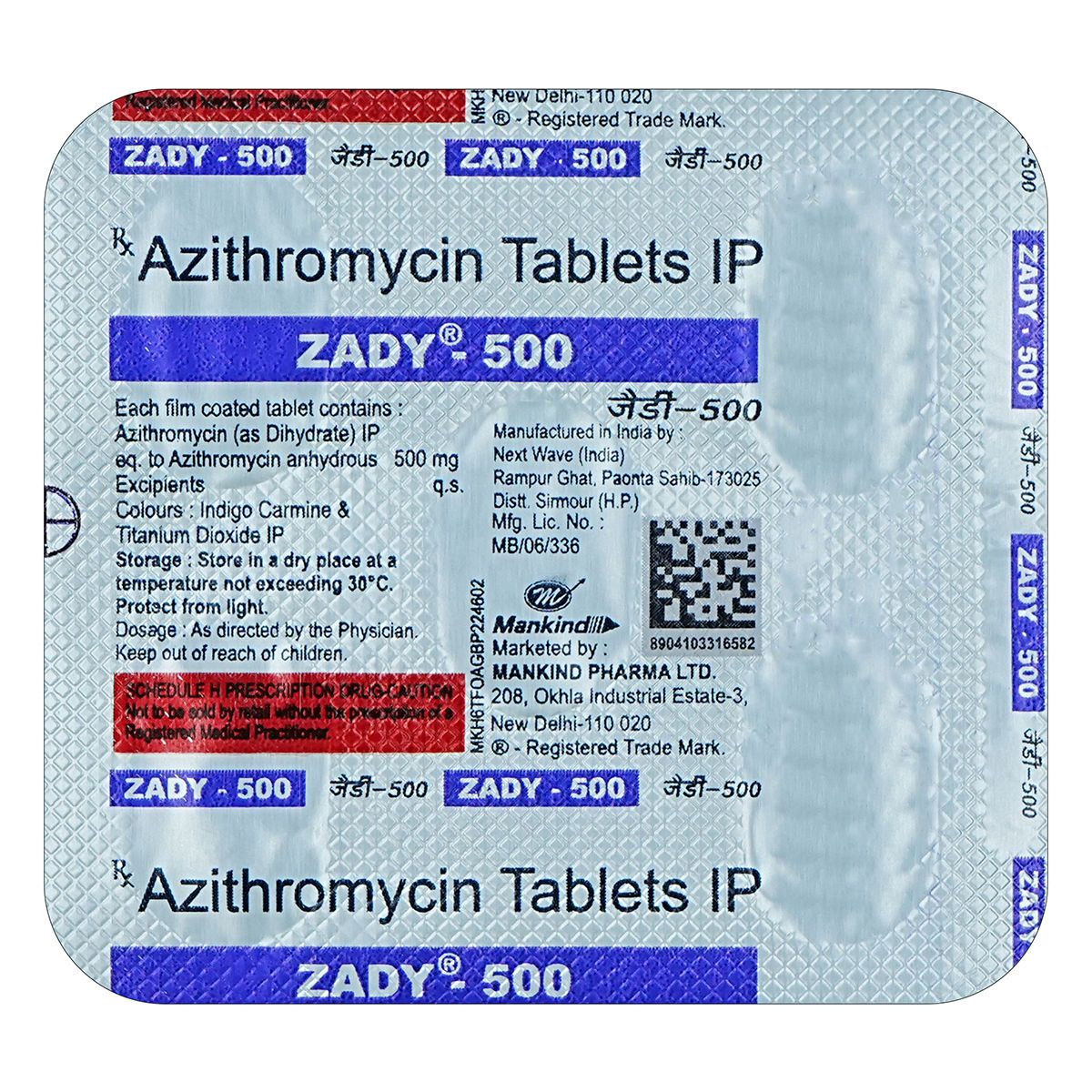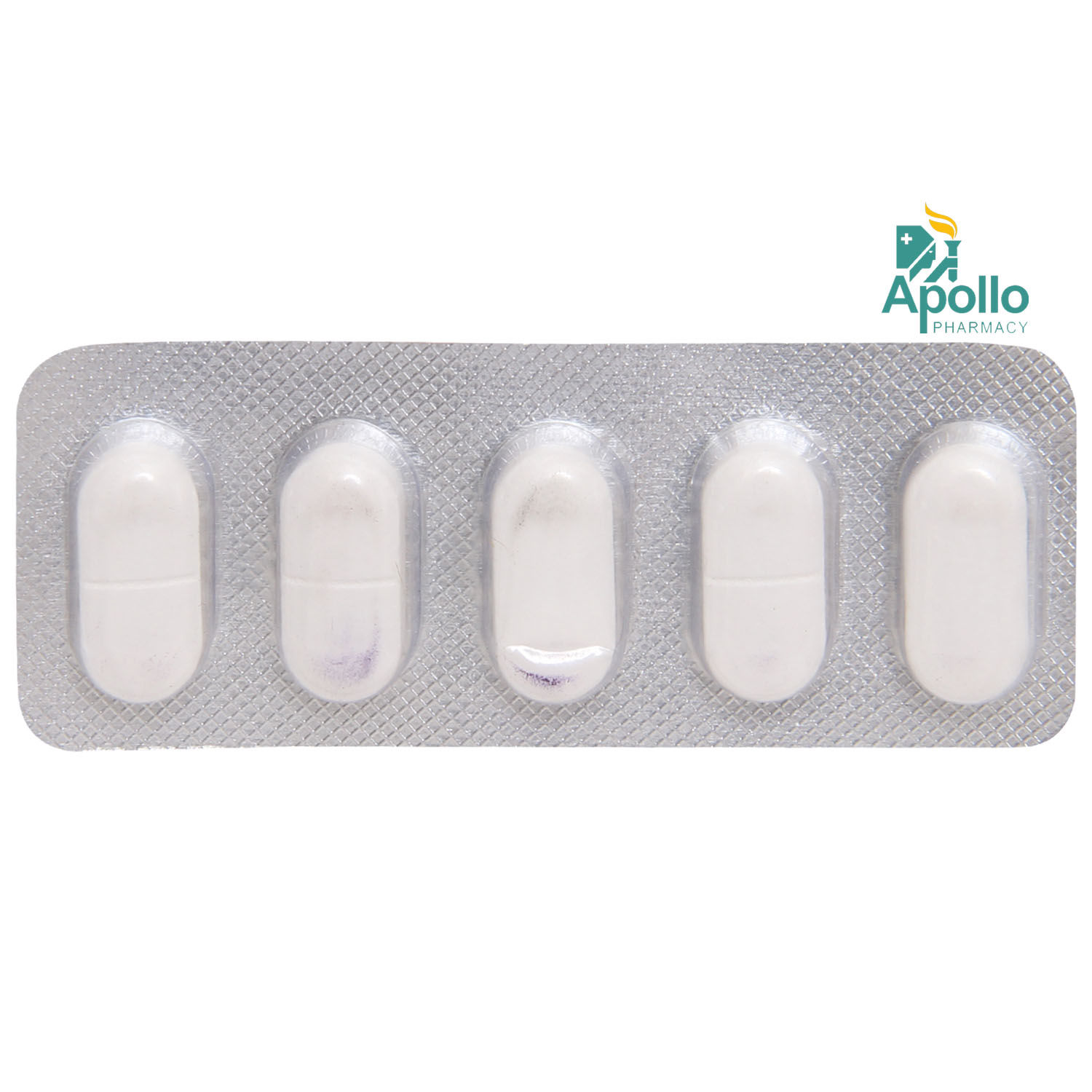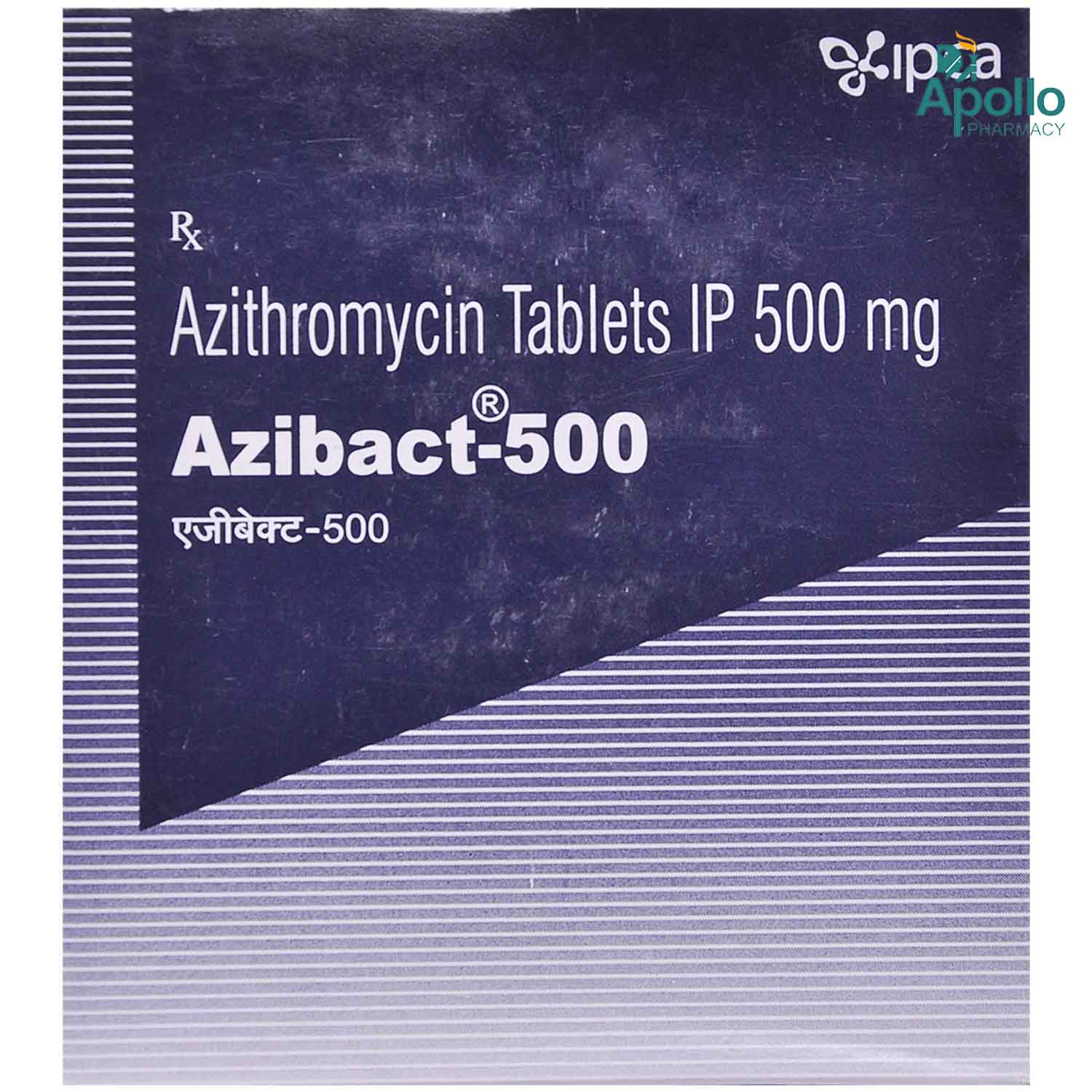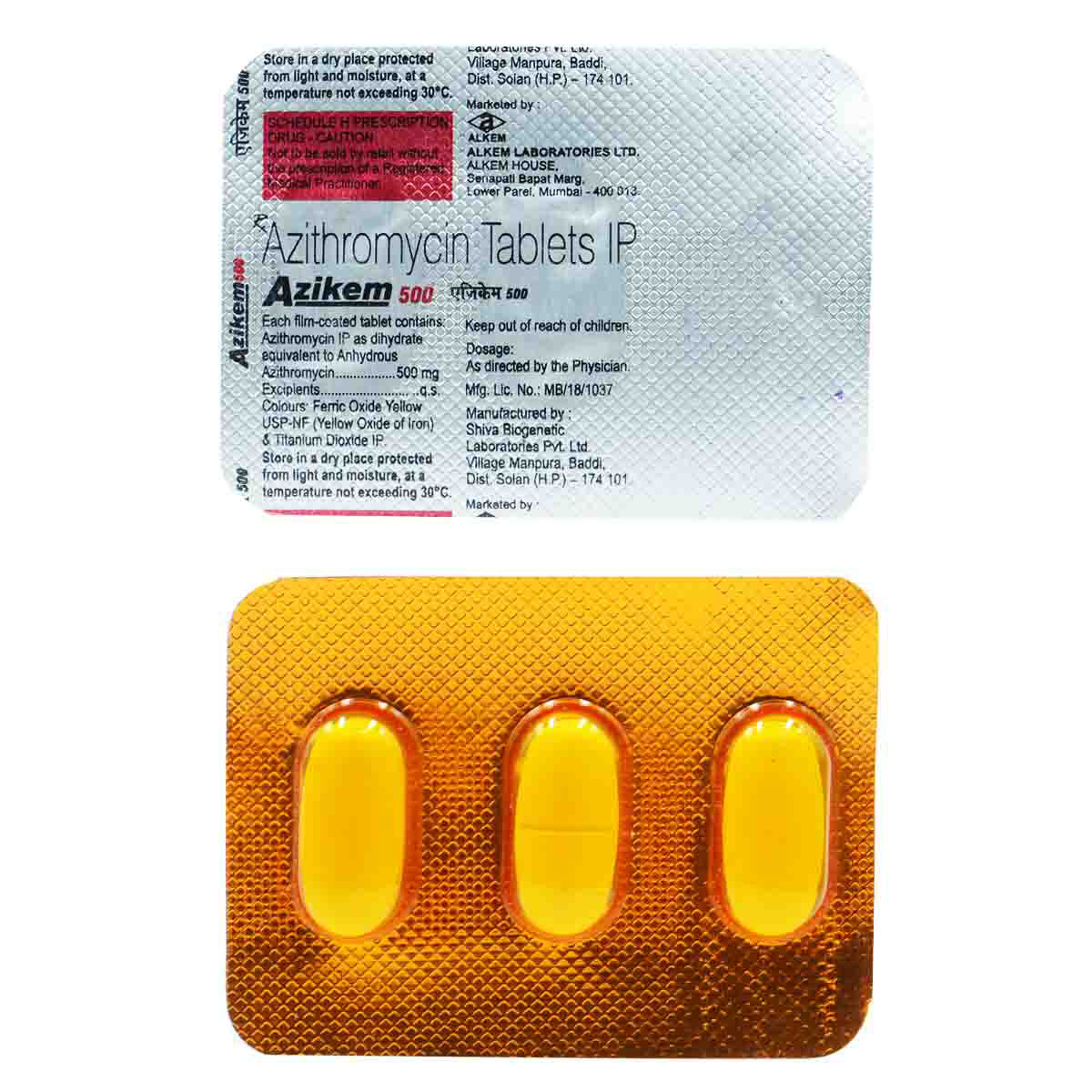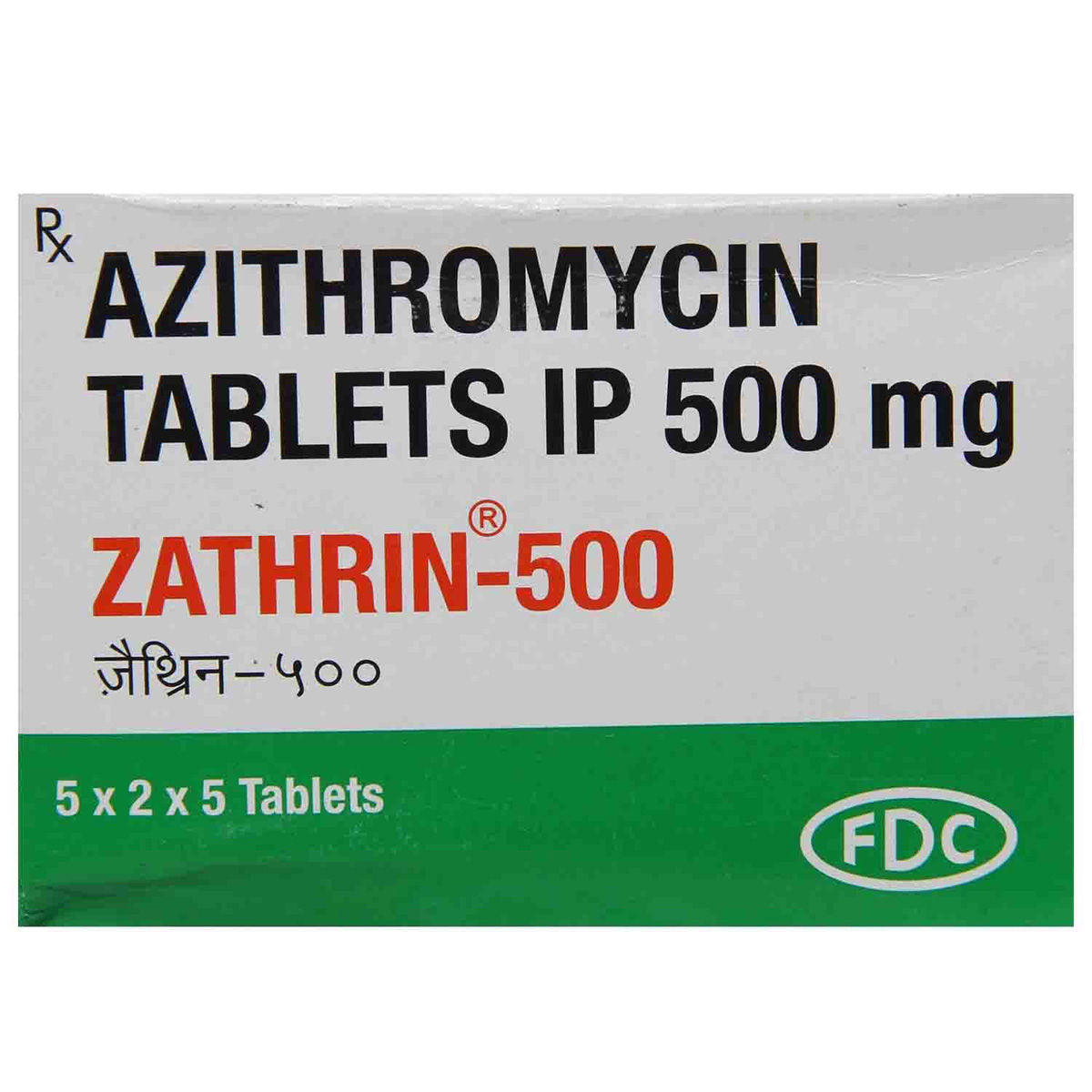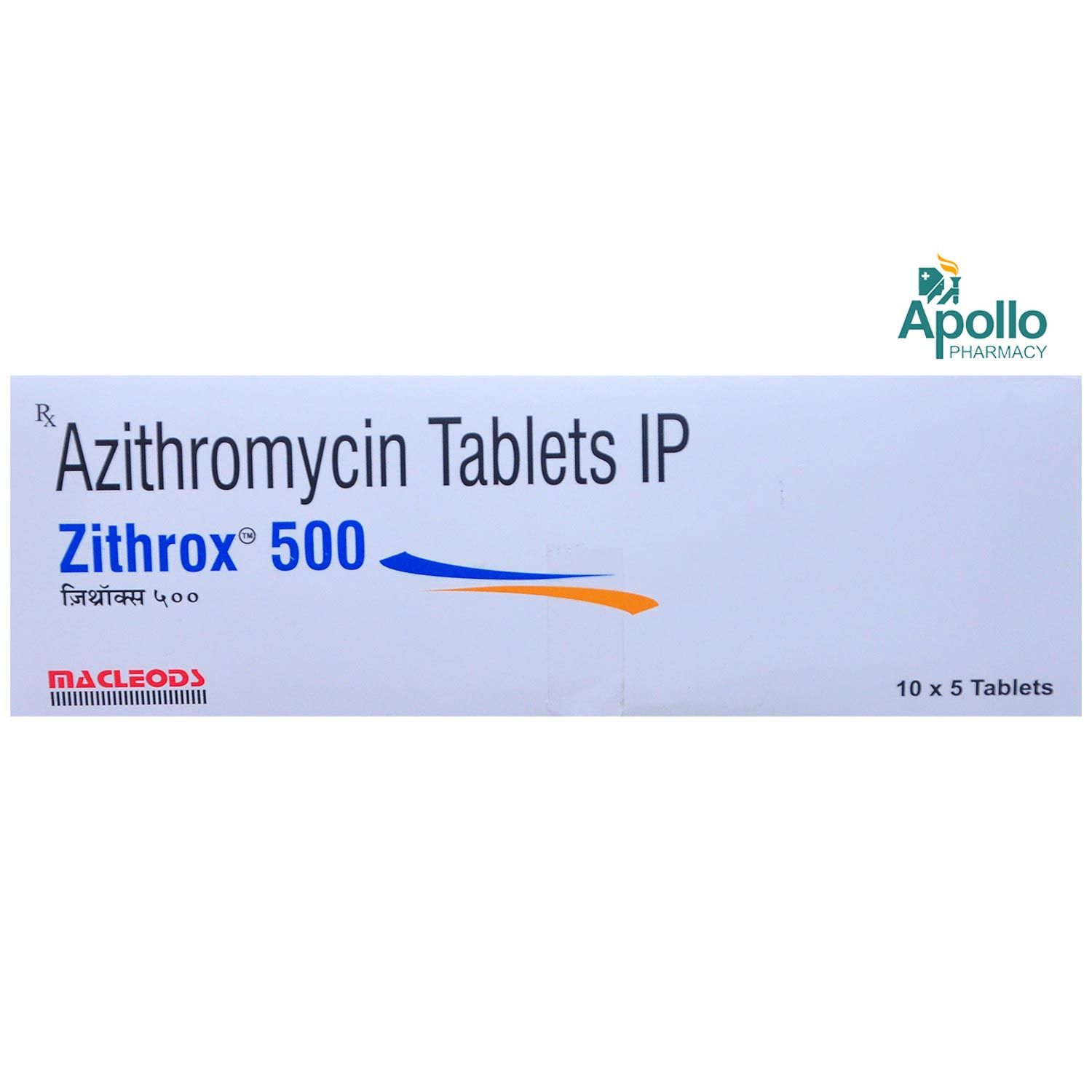Zetex 500 mg Tablet 10's

₹64.35*
MRP ₹71.5
10% off
₹60.77*
MRP ₹71.5
15% CB
₹10.73 cashback(15%)
Free Delivery
With Circle membership
(Inclusive of all Taxes)
This offer price is valid on orders above ₹800. Apply coupon PHARMA10/PHARMA18 (excluding restricted items)
Zetex 500 mg Tablet is used to treat various bacterial infections such as respiratory system (like pneumonia, bronchitis, tonsillitis, pharyngitis and sinusitis), skin infections (like acne and rosacea), ear infections, and sexually transmitted infections. It contains Azithromycin, which stops the growth of bacteria. It may cause some common side effects such as diarrhoea, nausea, vomiting, and indigestion. Before taking this medicine, you should tell your doctor if you are allergic to any of its components or if you are pregnant/breastfeeding, and about all the medications you are taking and pre-existing medical conditions.
Know Your Delivery Time
Provide Delivery Location
Selected Pack Size:10
10 ₹64.35
(₹6.44 per unit)
Out of stock
5 ₹105.8
(₹21.16 per unit)
In Stock
Available Offers
 Prescription drug
Prescription drugWhats That

Secure Payment

India's Most Trusted Pharmacy

Genuine Products
Composition :
Manufacturer/Marketer :
Consume Type :
Return Policy :
Expires on or after :
About Zetex 500 mg Tablet
Zetex 500 mg Tablet is an antibiotic. It is used to treat various bacterial infections such as respiratory system (like pneumonia, bronchitis, tonsillitis, pharyngitis and sinusitis), skin infections (like acne and rosacea), ear infections, and sexually transmitted infections. A bacterial infection is a condition in which bacteria grow in the body and cause infection. It can target any body part and multiple very quickly.
Zetex 500 mg Tablet slows the growth or sometimes kills the harmful bacteria by preventing the production of proteins required by the bacteria for its survival. Zetex 500 mg Tablet does not treat a viral infection like flu or a common cold.
Zetex 500 mg Tablet should only be taken if advised by your doctor. It can be taken with or without food but should be consumed at a fixed time for the best results. Zetex 500 mg Tablet should not be consumed more than the recommended dose, to avoid unpleasant side effects. Also, the course should be completed even if you feel better, as it is an antibiotic. Some common side effects of Zetex 500 mg Tablet are diarrhea, nausea, vomiting, and indigestion. An allergic reaction such as rashes, itching, swelling, and shortness of breath can occur in rare cases. Please consult your doctor if an allergic reaction becomes severe.
Tell your doctor if you have liver problems, muscle problems (myasthenia gravis), heart rhythm disorder (arrhythmia), or electrolyte imbalance (low potassium or magnesium level). You should consult a doctor if you have had diarrhea for more than four days. However, do not take any anti-diarrheal medicine until your doctor tells you. It is unknown whether Zetex 500 mg Tablet harms the baby or passes into breast milk during pregnancy and breastfeeding. Contacting a doctor before using Zetex 500 mg Tablet during pregnancy and while breastfeeding is better. Avoid too much exposure to sunlight as Zetex 500 mg Tablet can make your skin sensitive to sunburn. In this case, it is advisable to wear protective clothing or apply sunscreen (SPF 30 or higher) when you are outdoors.
Uses of Zetex 500 mg Tablet
•Treatment of Bacterial Infections: Zetex 500 mg Tablet is commonly prescribed for managing bacterial infections, including respiratory tract infections such as pneumonia and bronchitis.
•Skin and Soft Tissue Infections: Zetex 500 mg Tablet effectively treats skin conditions like cellulitis and other soft tissue infections caused by bacteria that respond to this medication.
•Sexually Transmitted Infections (STIs): Zetex 500 mg Tablet is widely used in the treatment of STIs such as Chlamydia and gonorrhea, due to its efficacy against the bacteria responsible for these diseases.
•Ear Infections (Otitis Media): Zetex 500 mg Tablet is also employed in the treatment of otitis media, a middle ear infection often seen in children, to alleviate symptoms and combat the infection.
Directions for Use
Tablet/capsule: Swallow it as a whole with water; do not crush, break or chew it. Dispersible Tablet: Check the label for directions before use. Disperse the tablet in the prescribed amount of water and swallow the contents. Do not crush, chew or swallow as a whole.
Medicinal Benefits
Zetex 500 mg Tablet slows the growth or sometimes kills the harmful bacteria by preventing the production of proteins required by the bacteria for its survival. It prevents and treats bacterial infections like throat and sinus infections, chest infections (like bronchitis and pneumonia), ear infections, mouth and dental infections, eye infections, skin and tissue infections (like acne), and stomach and intestinal infections. It is better tolerated and has more effective tissue penetration than other similar antibiotics like erythromycin. Doctors prescribe Zetex 500 mg Tablet for people who are intolerant to penicillin antibiotics. Besides this, it also helps prevent infection following burns, surgery or dental procedures, sexually transmitted infections, bone infections or scarlet fever (bacterial illness with strep throat).
How Zetex 500 mg Tablet Works
Storage
- Inform Your Doctor: Notify your doctor immediately about your diarrhoea symptoms. This allows them to adjust your medication or provide guidance on managing side effects.
- Stay Hydrated: Drink plenty of fluids to replace lost water and electrolytes. Choose water, clear broth, and electrolyte-rich drinks. Avoid carbonated or caffeinated beverages to effectively rehydrate your body.
- Follow a Bland Diet: Eat easy-to-digest foods to help firm up your stool and settle your stomach. Try incorporating bananas, rice, applesauce, toast, plain crackers, and boiled vegetables into your diet.
- Avoid Trigger Foods: Steer clear of foods that can worsen diarrhoea, such as spicy, fatty, or greasy foods, high-fibre foods, and dairy products (especially if you're lactose intolerant).
- Practice Good Hygiene: Maintain good hygiene to prevent the spread of infection. To stay healthy, wash your hands frequently, clean and disinfect surfaces regularly, and avoid exchanging personal belongings with others.
- Take Anti-Diarrheal Medications: If your doctor advises, anti-diarrheal medications such as loperamide might help manage diarrhoea symptoms. Always follow your doctor's directions.
- Keep track of your diarrhoea symptoms. If they don't get better or worse or are accompanied by severe stomach pain, blood, or dehydration signs (like extreme thirst or dark urine), seek medical help.
- Inform your doctor about the nausea and discuss possible alternatives to the medication or adjustments to the dosage.
- Divide your daily food intake into smaller, more frequent meals to reduce nausea.
- Opt for bland, easily digestible foods like crackers, toast, plain rice, bananas, and applesauce.
- Avoid certain foods that can trigger nausea, such as fatty, greasy, spicy, and smelly foods.
- Drink plenty of fluids, such as water, clear broth, or electrolyte-rich beverages like coconut water or sports drinks.
- Use ginger (tea, ale, or candies) to help relieve nausea.
- Get adequate rest and also avoid strenuous activities that can worsen nausea.
- Talk to your doctor about taking anti-nausea medication if your nausea is severe.
- Record when your nausea occurs, what triggers it, and what provides relief to help you identify patterns and manage your symptoms more effectively.
- Drink water or other clear fluids.
- To prevent worsening of pain, limit intake of tea, coffee, or alcohol.
- Include bland foods like rice, toast, crackers, and rice in your diet.
- Avoid lying down immediately after eating as it may cause indigestion or heartburn.
- Avoid acidic and spicy food as it may cause indigestion.
- Inform Your Doctor: Notify your doctor immediately about your diarrhoea symptoms. This allows them to adjust your medication or provide guidance on managing side effects.
- Stay Hydrated: Drink plenty of fluids to replace lost water and electrolytes. Choose water, clear broth, and electrolyte-rich drinks. Avoid carbonated or caffeinated beverages to effectively rehydrate your body.
- Follow a Bland Diet: Eat easy-to-digest foods to help firm up your stool and settle your stomach. Try incorporating bananas, rice, applesauce, toast, plain crackers, and boiled vegetables into your diet.
- Avoid Trigger Foods: Steer clear of foods that can worsen diarrhoea, such as spicy, fatty, or greasy foods, high-fibre foods, and dairy products (especially if you're lactose intolerant).
- Practice Good Hygiene: Maintain good hygiene to prevent the spread of infection. To stay healthy, wash your hands frequently, clean and disinfect surfaces regularly, and avoid exchanging personal belongings with others.
- Take Anti-Diarrheal Medications: If your doctor advises, anti-diarrheal medications such as loperamide might help manage diarrhoea symptoms. Always follow your doctor's directions.
- Keep track of your diarrhoea symptoms. If they don't get better or worse or are accompanied by severe stomach pain, blood, or dehydration signs (like extreme thirst or dark urine), seek medical help.
- Tell your doctor about your GAS symptoms. They may change your medication regimen or prescribe additional drugs to help you manage them.
- To manage GAS symptoms, eat a balanced diet of fibre, vegetables, and fruits.
- Drink enough water throughout the day to avoid constipation and treat GAS symptoms.
- Regular exercise like yoga and walking may help stimulate digestion and alleviate GAS symptoms.
- Take probiotics only if your doctor advises, as they may help alleviate GAS symptoms by promoting gut health.
- Take medication for GAS symptoms only if your doctor advises, as certain medications can interact with your existing prescriptions or worsen symptoms.
- If symptoms persist, worsen, or are accompanied by severe abdominal pain, vomiting, or bleeding, seek immediate medical attention.
- Avoid taking raw fruits, nuts and vegetables.
- Do not share your personal things with others like toothbrushes.
- Clean the wounds and cuts using soap and water.
- Wash your hands thoroughly and frequently and maintain hygiene.
- Get a good quality of sleep.
- Preventing Vomiting (Before it Happens)
- Take medication exactly as prescribed by your doctor. This can help minimize side effects, including vomiting.
- Having a small meal before taking your medication can help reduce nausea and vomiting.
- Talk to your doctor about taking anti-nausea medication along with your prescribed medication.
- Managing Vomiting (If it Happens)
- Try taking ginger in the form of tea, ale, or candy to help alleviate nausea and vomiting.
- What to Do if Vomiting Persists
- Consult your doctor if vomiting continues or worsens, consult the doctor for guidance on adjusting your medication or additional treatment.
What if I have taken an overdose of Zetex 500 mg Tablet
Drug Warnings
Tell your doctor if you have liver problems (jaundice), muscle problems (myasthenia gravis), heart rhythm disorder (arrhythmia), or electrolyte imbalance (low potassium or magnesium level). In rare cases, the use of Zetex 500 mg Tablet can cause diarrhoea, so if you have watery or bloody diarrhoea, stop taking Zetex 500 mg Tablet and call your doctor. However, do not take any anti-diarrheal medicine until your doctor tells you. It is unknown whether Zetex 500 mg Tablet harms the baby during pregnancy. Consult your doctor if you are pregnant, planning for pregnancy or breastfeeding before using Zetex 500 mg Tablet . Do not take Zetex 500 mg Tablet if allergic to azithromycin or other macrolide antibiotics. Inform the doctor if you are using cholesterol-lowering drugs (statins like simvastatin, lovastatin etc.), anti-gout or anti-arthritis drugs (colchicine) and medicine for treating overactive bladder (tolterodine). Zetex 500 mg Tablet is not recommended for the patients with pneumonia who are judged to be inappropriate for oral therapy due to moderate to severe illness or risk factors.
Drug-Drug Interactions
Drug-Drug Interactions
Login/Sign Up
Co-administration of Zetex 500 mg Tablet with Ziprasidone can increase the risk of irregular heart rhythm.
How to manage the interaction:
Although there is an interaction between Ziprasidone and Zetex 500 mg Tablet but can be taken together if prescribed by a doctor. Contact a doctor immediately if you experience sudden dizziness, lightheadedness, fainting, shortness of breath. Do not discontinue any medications without consulting a doctor.
Taking Zetex 500 mg Tablet with crizotinib may increase the risk of an abnormal heart rhythm.
How to manage the interaction:
Although using Zetex 500 mg Tablet alongside crizotinib can result in an interaction, it can be taken if a doctor has advised it. However, if you experience sudden dizziness, lightheadedness, fainting, shortness of breath, or heart palpitations, get medical treatment immediately. Do not discontinue any medications without consulting a doctor.
Co-administration of Zetex 500 mg Tablet with Haloperidol can increase the risk of developing irregular heart rhythms.
How to manage the interaction:
Taking Zetex 500 mg Tablet with Haloperidol together can result in an interaction, but it can be taken if a doctor has advised it. However, if you experience sudden dizziness, lightheadedness, fainting, breathing difficulty, or rapid heartbeat, consult the doctor immediately. Do not stop any medications without a doctor's advice.
Taking Zetex 500 mg Tablet with leflunomide can cause liver problems.
How to manage the interaction:
Although there is an interaction between Zetex 500 mg Tablet and leflunomide, they can be taken together if prescribed by a doctor. However, consult a doctor if you experience fever, chills, joint pain or swelling, unusual bleeding or bruising, skin rash, itching, less desire to eat, fatigue, nausea, vomiting, abdominal pain, and/or yellowing of the skin or eyes. Do not discontinue any medications without consulting a doctor.
Taking Zetex 500 mg Tablet with vemurafenib increases the risk of an abnormal heart rhythm. If you're dealing with other cardiac illnesses, electrolyte imbalances (for example, magnesium or potassium loss likely due to serious or prolonged diarrhoea or vomiting), you may be at greater risk.
How to manage the interaction:
Although administration of Zetex 500 mg Tablet alongside vemurafenib can possibly result in an interaction, it can be taken if your doctor has advised it. However, if you experience sudden dizziness, lightheadedness, fainting, breathing difficulty, or rapid heartbeat, consult the doctor immediately. Do not stop any medications without a doctor's advice.
Taking amisulpride with Zetex 500 mg Tablet increases the risk of an abnormal heart rhythm.
How to manage the interaction:
Though using amisulpride and Zetex 500 mg Tablet together can result in an interaction, it can be taken if a doctor has advised it. However, if you experience abrupt dizziness, lightheadedness, fainting, shortness of breath, or heart palpitations, get medical treatment immediately. Do not discontinue any medications without consulting doctor.
Taking Zetex 500 mg Tablet with cabozantinb may increase the risk of an abnormal heart rhythm.
How to manage the interaction:
Although using Zetex 500 mg Tablet alongside cabozantinb can result in an interaction, it can be taken if a doctor has advised it. However, if you experience sudden dizziness, lightheadedness, fainting, breathing difficulty, or rapid heartbeat, consult the doctor immediately. Do not stop any medications without a doctor's advice.
Taking Zetex 500 mg Tablet along with edoxaban may raise the blood levels of edoxaban. This increases the possibility of significant or serious bleeding problems.
How to manage the interaction:
Though administration of Zetex 500 mg Tablet alongside edoxaban can result in an interaction, it can be taken if a doctor has advised it. However, if you have any unusual bleeding or bruising, dizziness, lightheadedness, red or black, tarry stools, coughing up or vomiting fresh or dried blood that looks like coffee grounds, severe headache, and weakness, you should seek immediate medical attention. Do not discontinue any medications without consulting a doctor.
Taking Zetex 500 mg Tablet with hydroxychloroquine increases the risk of an abnormal heart rhythm.
How to manage the interaction:
Though administration of Zetex 500 mg Tablet alongside hydroxychloroquine can result in an interaction, it can be taken if a doctor has advised it. However, if you experience sudden dizziness, lightheadedness, fainting, breathing difficulty, or rapid heartbeat, consult the doctor immediately. Do not stop any medications without a doctor's advice.
Taking Zetex 500 mg Tablet with Ivabradine increases the risk of an abnormal heart rhythm.
How to manage the interaction:
Though administration of Zetex 500 mg Tablet alongside Ivabradine can result in an interaction, it can be taken if a doctor has advised it. However, if you experience sudden dizziness, lightheadedness, fainting, shortness of breath, or rapid heartbeat, get medical treatment immediately. Do not discontinue any medications without consulting a doctor.
Drug-Food Interactions
Drug-Food Interactions
Login/Sign Up
Diet & Lifestyle Advise
It would be best to take probiotics after taking the full course of Zetex 500 mg Tablet to restore some healthy bacteria in the intestine that may have been killed. Taking probiotics after antibiotic treatment can reduce the risk of antibiotic-associated diarrhoea. Certain fermented foods like yoghurt, cheese, sauerkraut and kimchi can help restore the intestine's good bacteria.
Include more fibre-enriched food in your diet, as it can be easily digested by gut bacteria which helps stimulate their growth. Thus fibre foods may help restore healthy gut bacteria after taking a course of antibiotics. Whole grains like whole-grain bread, and brown rice, should be included in your diet.
Avoid taking too much calcium enriched foods and drinks as it might affect the working of Zetex 500 mg Tablet .
Avoid intake of alcoholic beverages with Zetex 500 mg Tablet as it can make you dehydrated and affect your sleep. This can make it harder for your body to aid the Zetex 500 mg Tablet in fighting off infections.
Habit Forming
Therapeutic Class
Zetex 500 mg Tablet Substitute

Aquris Azithcin 500 Tablet 3's
by Others
₹14.40per tabletAzithral-500 Tablet 5's
by Others
₹23.68per tabletAzee-500 Tablet 5's
by Others
₹23.68per tabletAzax-500 Tablet 3's
by Others
₹19.77per tabletAzicip 500 Tablet 3's
by Others
₹23.70per tablet
Product Substitutes
Alcohol
Safe if prescribed
Zetex 500 mg Tablet should not be taken until prescribed if you are taking alcohol. Keep your doctor informed if you drink alcohol.
Pregnancy
Unsafe
There is insufficient information available about the use of Zetex 500 mg Tablet during pregnancy. Therefore you should not use Zetex 500 mg Tablet during pregnancy unless explicitly advised by your doctor.
Breast Feeding
Unsafe
Zetex 500 mg Tablet is partially passed through the mother’s milk, therefore it should not be used if you are breastfeeding.
Driving
Safe if prescribed
There are no data available about the influence of Zetex 500 mg Tablet on the ability to drive or operate machines. However, Zetex 500 mg Tablet may cause dizziness and seizures so make sure you are not affected before driving or operating machinery.
Liver
Caution
You should tell your doctor if you have liver problems as your doctor may need to alter the normal dose.
Kidney
Caution
You should tell your doctor if you have kidney problems as your doctor may need to alter the normal dose.
Children
Caution
Safety and effectiveness in the treatment of patients under 6 months of age have not been established. So, it is not recommended for children less than 6 months of age. However, if the doctor has prescribed for the children more than 6 months Zetex 500 mg Tablet can be used.
FAQs
Zetex 500 mg Tablet is used to treat bacterial infections such as respiratory tract infections (like pneumonia, bronchitis, tonsillitis, pharyngitis and sinusitis), skin infections (like acne and rosacea), ear infections, and sexually transmitted infections. It works by killing the harmful bacteria.
Do not take antacids that contain aluminium or magnesium hydroxide within 2 hours before or after you take Zetex 500 mg Tablet . These antacids can interact with Zetex 500 mg Tablet and make them less effective when taken at the same time.
Never stop the treatment with Zetex 500 mg Tablet on your own as the infection may come back again (relapse) if the prescribed treatment is not completely taken. Before stopping Zetex 500 mg Tablet once discuss this with your doctor.
If you forget to take Zetex 500 mg Tablet , take your dose as soon as possible. If it is almost time for the next dose, just skip that dose and take the next one when it is due. If in doubt, please contact your doctor. Do not take a double dose to make up for a forgotten dose
Zetex 500 mg Tablet can cause diarrhoea, which may be a sign of a new infection. If you have diarrhoea that is watery or bloody, call your doctor. Do not use anti-diarrhoea medicine unless your doctor tells you to.
You should avoid taking Zetex 500 mg Tablet if you have colitis (intestine inflammation), heart rhythm disorder, liver disease (like jaundice), and muscle problem (like myasthenia gravis). Contact your doctor if you have these conditions before taking Zetex 500 mg Tablet .
No, it is a Schedule H drug that can be taken only if your doctor has prescribed it. Taking it on your own or self-medication can cause unwanted side-effects and lead to antibiotic resistance thereby lowering its efficiency.
Yes in some cases, people using Zetex 500 mg Tablet may get a fungal skin infection known as thrush. It happens because Zetex 500 mg Tablet also kills harmless bacteria that protects against thrush.
Zetex 500 mg Tablet is an effective antibiotic that helps treat bacterial infections. It has a broad spectrum of anti-bacterial activity and is effective against gram-positive and gram-negative bacteria.
Zetex 500 mg Tablet can be taken with or without food.
Zetex 500 mg Tablet should be used with caution in patients with liver problems. In some cases, the use of Zetex 500 mg Tablet can cause diarrhoea, so if you have watery or bloody diarrhoea, stop taking Zetex 500 mg Tablet and call your doctor.
Zetex 500 mg Tablet may interact with anti-emetics, neuroleptics, migraine medicines, statins, anticholinergics and anti-gout medicines. Before starting Zetex 500 mg Tablet , let the doctor know if you are taking any other medicines to prevent interactions.
Store Zetex 500 mg Tablet at room temperature, in a cool and dry place. Keep it out of sight and reach of children.
Side effects of Zetex 500 mg Tablet include diarrhoea, nausea, vomiting, and indigestion. Please consult the doctor if any of the side effects persist or worsen.
Country of origin
Manufacturer/Marketer address
Disclaimer
Author Details
We provide you with authentic, trustworthy and relevant information
Reference
- https://www.medicines.org.uk/emc/files/pil.2276.pdf
- https://www.drugs.com/disease-interactions/azithromycin.html
- https://www.google.com/url?sa=t&rct=j&q=&esrc=s&source=web&cd=&ved=2ahUKEwjj17eE5PTsAhXCQ3wKHdPPBoIQFjABegQIAxAC&url=https%3A%2F%2Fwww.accessdata.fda.gov%2Fdrugsatfda_docs%2Flabel%2F2017%2F050710s44-050711s41-050784s28lbl.pdf&usg=AOvVaw3CifsQo7FLm9TbF0f4Ai9X






